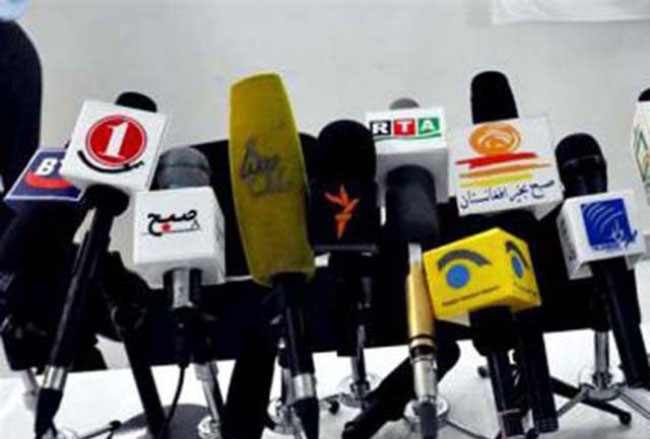The right of access to information is considered one of the fundamental rights of mankind in the society. Based on this right, citizens are able to get access to national and international information. Ignoring or curtailing this right is tantamount to depriving citizens from information. Spreading public awareness is the most significant responsibility of the media, which are supposed to shoulder their responsibilities in social, political, cultural, and economic arenas. The media are a pivotal element of democracy in all societies since access to information will pave the ground for citizens to monitor the mechanism of designating government and make sure the government fulfills its duties devotedly. That is to say, all Afghan citizens are entitled to be aware of the government’s reports and documents regarding public welfare.
Smoothing path for right of access to information will result in transparency in the society that will be followed by responsible officials, which will eventuate in planning a rational mechanism for fighting corruption. Therefore, no power, including the state, will be able to keep people in dark or falsify social facts under the pretext of protecting public order. Discerning this fact, the National Unity Government (NUG) is seeking to prioritize supporting the right of access to information and let the public to exercise this right. Thus, backing journalists and protecting their life are focused by the government. It was underlined that supporting nationwide media is the most significant responsibility of the state.
The government has further stressed on supporting the safety and immunity of journalists by governors and security institutions in provinces. To support people have access to information, governors are supposed to protect the life of journalists. In case of not being secure, neither journalists nor the media can report news at proper time, fulfill their duties with peace of mind, or reveal economic and administrative offences with courage. Spreading awareness and getting access to information will not be possible without the safety of journalists. Luckily, government has not ignored this fact and took practical step in this respect which includes: approving and endorsing law on access to information, issuing presidential decree and mandate to authorities to facilitate access to information, establishing a commission of access to information, establishing joint committee for providing security and coordinating between state and the media under the supervision of Second Vice President Sarwar Danish, conducting monthly meeting in the centers of provinces to review the problems of the media and journalists, establishing a coordination center at the ministry of the interior and security headquarters and support center at the National Directorate of Security in the center and provinces, outlining and categorizing cases of violence against journalists and pursuing them seriously through judicial institutions, and investigating the cases of officials who did not cooperate with the media or were not accountable.
It is worth saying that the media are not supposed to capitalize on such issues through spreading inappropriate news that will lead to public disorder or citizen’s mental disturbance. Legal restrictions must not be crossed. Similar to other rights, the right of access to information is not absolute, either; rather it has some restriction to be taken into account. For example, the media ought to do their best to keep the order and stability and protect one’s privacy. The media are not allowed to spread ethnic, linguistic, or religious hatred. These are the red line to be kept and transcending this will necessarily cause public disorder in the community.
Considering the aforementioned issues, the mass media have responsibility to spread awareness, widen the horizon of the public, and promote the level of their information. The media need to play their constructive role in a transparent way and monitor the function of government institutions, fight corruption, strengthen national unity, support the spirit of brotherhood, and endeavor to preach human rights and dignity.
Fortunately, the criteria, limits, and borders of freedom of the mass media are specified in the law of the mass media and other legislative documents. The obligations of each holder of media privileges have been drafted and approved. In case of infringement, there is possibility for legal prosecution. This issue will ensure freedom of the media and press. Promoting and supporting the freedom of thought and expression, safeguarding the rights of journalists, providing safe environment for their activities, developing the mass media, and smoothing an appropriate ground for expressing thought through verbal or written instruments have been the main objectives of this law. It is hoped that citizens will enjoy this right in the frame of the law with the cooperation and coordination of the government, security institutions, civil society, and the media.
While a major step has been taken in Afghanistan by enacting this law, it is important, especially for authorities, to keep in mind that the implementation stage poses significant challenges for the full enjoyment of the right of access to information. As international experience and empirical evidence suggest, the adoption of this kind of legislation is just a milestone on a long road. If this right is to fulfill its potential, effective implementation must follow.
In conclusion, and notwithstanding challenges ahead, Afghanistan has taken a strong step forward while paying its dues to democracy. The right of access to information is now at the disposal of all Afghans as an empowering tool for the enjoyment of other human rights.
Home » Opinion » The Need to Support Mass Media in Afghanistan
The Need to Support Mass Media in Afghanistan
| Abdul Hamid Arifi

